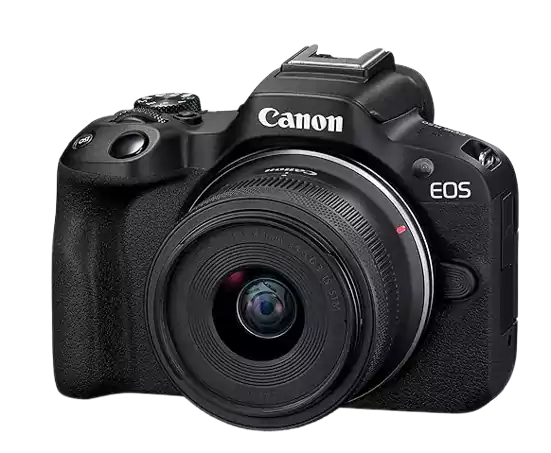Imagine walking through the historic streets of Jerusalem Market. You see vibrant colors, mouth-watering food, and a bustling atmosphere.
Doesn’t it sound awesome?
Allow us to take you on a journey through the historical roots of the market and highlight some of the best markets in Jerusalem.
We’ll also give you insider tips on the iconic sites around the market, culinary delights to try, and hidden gems that are worth exploring.
Are you ready?
The Historical Roots of Jerusalem Market
Jerusalem Market, nestled in the heart of Jerusalem’s old city, has deep historical roots and immense significance. It’s a place where the ancient olive trees whisper tales of the past, and the cobblestone streets lead you on a journey through time.
As you traverse the bustling bazaars, you can’t help but feel the layers of its rich heritage and cultural tapestry.
The market is more than just a place to shop; it’s an enlightening experience. Wander through the narrow alleys of the Jewish Quarter, pass through the Jaffa Gate, and enjoy the vibrant atmosphere of the Christian Quarter.
Discover historical landmarks like the Via Dolorosa and the Tomb of Jesus, which sit as a small structure amidst the bustling market. Each step you take resonates with the footsteps of Jesus, making it a significant pilgrimage route and destination for Christians worldwide.
Exploring the Jerusalem Market is like peeling back the layers of time, uncovering hidden gems and unique charm within its walls. With its diverse heritage and cultural tapestry, the market truly embodies the spirit of Jerusalem itself.

The Best Markets in Jerusalem
When it comes to experiencing the vibrant tapestry of Jerusalem, exploring the best markets is a must. The enchanting old city streets also hold hidden gems within the market, waiting to be discovered.
There is a fine mix of tradition and modernity. These markets in Jerusalem offer an immersive experience where you can truly capture the essence of the city.
Let’s explore them one by one.
1. Machane Yehuda Market/Shuk
Dip yourself in the vibrant atmosphere of Machane Yehuda Market, also known as Shuk. Sample the local cuisine and experience the flavors of Jerusalem as you wander through this bustling marketplace.
The market is a sensory delight with its unique charm and colorful fresh produce. Lose yourself in the sights, sounds, and smells as you explore the hidden corners and discover culinary treasures.
From the ancient olive trees to the small structures tucked away in the quarter of the old city, Machane Yehuda Market offers an enlightening experience for visitors of all backgrounds.
Simply seeking to soak up the immense significance of this historical landmark. The market promises an intense experience showcasing the layers of its rich history.
Don’t miss the chance to visit one of the most popular markets in Jerusalem!

2. Old City Market
Lose yourself in the captivating streets of Jerusalem’s Old City Market, where history and culture come alive. Wander through the narrow alleyways and engross yourself in centuries of stories waiting to be discovered.
As you explore, you’ll encounter iconic landmarks like the Western Wall and the Church of the Holy Sepulchre, each holding immense spiritual significance for different religious groups.
The Old City Market offers a truly immersive experience, where spirituality and commerce coexist harmoniously. It’s a place of prayer and pilgrimage, attracting visitors from all over the world.
3. The First Station
At The First Station, you’ll be immersed in a vibrant atmosphere that offers a unique blend of shops, cafes, and restaurants.
This lively market is not just a place to shop and dine; it also holds historical significance as a former railway station. On September 26, 1892, the Jerusalem station welcomed the first train from Jaffa.
As you explore the market, you’ll have the opportunity to attend live events and entertainment, adding to the excitement of your visit.
The First Station is a melting pot of flavors, with its eateries offering a mix of local and international cuisines.
4. Mamilla Mall
A new age mall where you can shop to your heart’s content at the upscale Mamilla Mall. Here you’ll find a delightful range of high-end fashion brands and luxury boutiques.
Treat yourself to a culinary feast with the gourmet dining options and rooftop bars offering panoramic views. Engage yourself in the blend of modern architecture and ancient stones that define the unique ambiance of Mamilla Mall.
Take a stroll along the beautifully designed outdoor promenade, soaking in the atmosphere and enjoying the sights and sounds of this vibrant shopping destination.
Mamilla Mall is a must-visit for any shopaholic or fashion enthusiast seeking an enlightening experience in the heart of Jerusalem.
5. Bezalel Arts Fair Market
Bezalel Arts Fair Market is home to vibrant arts of unique handmade crafts, jewelry, and artworks by local artists.
Support the local art community and take home a one-of-a-kind piece. Enjoy live music, performances, and exhibitions at this artistic market. Experience the creative energy and cultural treasures of Bezalel Arts Fair Market.
Tel Aviv, known for its thriving art scene, is just a short distance away from Jerusalem’s old city.
The Bezalel Arts Fair Market is located in the heart of Jerusalem and offers an immersive experience of the world of art.
With its immense significance and historical landmarks, a visit to Bezalel Arts Fair Market is an enlightening experience for art lovers and those seeking a deeper understanding of the rich cultural heritage of Jerusalem.

6. Emek Refaim Market Street
You will feel it when you are there! They just don’t call it enchanting Emek Refaim Market Street. It is a delightful destination filled with boutique shops, cozy cafes, and mouthwatering restaurants.
Walk along this vibrant street and enthrall yourself in its laid-back atmosphere.
As you explore, you’ll uncover hidden gems and unique products that are sure to captivate your interest. The market’s eateries offer a fusion of local and international flavors, providing a culinary experience that will delight your taste buds.
Emek Refaim Market Street is a charming place where you can indulge in shopping, savor delicious meals, and soak in the neighborhood’s authentic charm.
7. Petra Mediterranean market
Now, transport yourself to the flavors of the Middle East at Petra Mediterranean market. Indulge in a rich and diverse culinary experience as you sample a variety of fresh and authentic Middle Eastern cuisine.
The bustling market offers an opportunity to explore and discover new ingredients and spices, allowing you to elevate your cooking at home.
As you wander through the market, you will be engrossed in the rich cultural heritage of the region, experiencing the vibrant atmosphere and warm hospitality. From the aroma of traditional spices to the colorful displays of fresh produce, every corner of the Petra Mediterranean market tells a story.

Iconic Sites Around the Jerusalem Market

There is so much to see here in Jerusalem. Take your time and wander off to these historical places.
- Awe-inspiring Western Wall (an important symbol of Jewish heritage)
- Temple Mount (Panoramic view of the city)
- Jerusalem’s Old City
- Church of the Holy Sepulchre
- Via Dolorosa
- Tomb of Jesus
Traditional Foods to Try at the Market
Indulge in the flavors of the Jerusalem Market, where you can savor the traditional foods that make Middle Eastern cuisine so renowned.
- Falafel
- Shawarma
- Hummus
- Malawach
- Jerusalem Bagels (also known as Simit)
- Kubbeh
- Sabich
- Jerusalem Mixed Grill (Meorav Yerushalmi)
- Musakhan
- Maqluba
- Sambusak
- Israeli Salad
- Shakshuka
- Knafeh
- Baklava
Best Times to Visit for a True Local Experience
Experience the true essence of Jerusalem Market by planning your visit during the best times of the year.
- Spring (March to May): Spring is a wonderful time to visit Jerusalem. The weather is generally pleasant, and the city’s gardens and parks come to life with colorful flowers. It’s an excellent time for outdoor exploration and cultural experiences.
- Fall (September to November): Similar to spring, the fall season offers pleasant weather and is ideal for exploring the city and its outdoor attractions. It’s also a time when many Jewish holidays, including Rosh Hashanah and Yom Kippur, are observed, providing an opportunity to experience local traditions and celebrations.
- Non-Peak Tourist Seasons: To have a more authentic local experience, try to avoid the peak tourist seasons, such as summer. Summers in Jerusalem can be quite hot, and there tends to be an influx of tourists. To experience the city with fewer crowds and at a more relaxed pace, plan your visit during the shoulder seasons (spring and fall).
- Festivals and Religious Holidays: Jerusalem is a city of diverse religious traditions hosting numerous festivals and religious holidays throughout the year. Visiting during major religious events, such as Easter, Passover, or Ramadan, can provide unique cultural insights and experiences.
- Shabbat (Sabbath): To experience Shabbat, the Jewish day of rest and celebration, visit from Friday evening to Saturday evening. Many businesses and shops are closed during this time, but you can witness traditional rituals and partake in communal Shabbat dinners.
- Local Markets: Visit local markets, such as Mahane Yehuda Market (the shuk), during the weekdays and especially on Fridays when locals do their shopping for the weekend. The market comes alive with street food, music, and a lively atmosphere.
- Jerusalem International Film Festival: If you’re a film enthusiast, consider planning your visit during the Jerusalem International Film Festival, which usually takes place in July.
What Makes Jerusalem Market a Must-Visit Destination?
The Jerusalem Market is truly a must-visit destination for any traveler seeking to absorb themselves in the vibrant tapestry of this historic city. With its rich cultural heritage and diverse traditions, the market offers a treasure trove of experiences that captivate the senses and ignite the imagination.
One of the main reasons Jerusalem Market is so remarkable is its connection to local traditions and celebrations. During holidays like Rosh Hashanah and Yom Kippur, visitors have the unique opportunity to witness firsthand the customs and rituals that define these special occasions.
The Harmony of Cultures at Jerusalem Market
Delve into the Christian, Jewish, and Muslim quarters within the market, each steeped in historical and religious significance.
As you explore this multicultural hub, you’ll feel the immense significance it holds as a place of prayer for major religions.
At the Jerusalem Market, you’ll discover a captivating world that effortlessly weaves together different traditions and creates a truly rich experience.
Hidden Gems in the Jerusalem Market
When in Jerusalem, don’t forget to visit the lesser-known art galleries and cultural gems tucked away amidst the bustling bazaars.
Navigate through the enchanting old city streets, where each corner reveals hidden courtyards steeped in history.
Blend in with the local culture by perusing the offerings of local vendors, who showcase unique crafts and souvenirs that capture the essence of Jerusalem.
Don’t miss the Armenian Quarter, an ancient neighborhood with its distinct history and charm.
Are the Jerusalem Markets Safe for Tourists?
With its vibrant tapestry of colors, flavors, and traditions, the Jerusalem Market beckons travelers from all corners of the world. The question of safety often arises when planning a visit to this bustling hub of activity.
Rest assured, the Jerusalem Market is generally safe for tourists.
While it’s always important to exercise caution and be mindful of your surroundings like in any unfamiliar place, the market itself is well-regulated and heavily frequented by locals and tourists alike. Security measures are in place to ensure a safe environment for everyone.
It is advisable to follow the guidance provided by local authorities and stay up-to-date with any updates or advisories regarding safety in Jerusalem.
Souvenirs to Bring Back from Jerusalem Market
- Olive Wood Products: Handcrafted items made from olive wood, such as religious figurines, crosses, rosary beads, and kitchen utensils, are widely available.
- Dead Sea Beauty Products: Dead Sea mud masks, salts, and cosmetic products are famous for their rejuvenating properties. These make for popular souvenirs.
- Israeli Jewelry: You can find unique and beautiful jewelry, including pieces with Hebrew inscriptions, Star of David pendants, and Roman glass jewelry, which is made from ancient glass fragments found in the region.
- Traditional Ceramics: Colorful and intricately designed ceramic and pottery items, such as bowls, plates, and tiles, are available in various markets.
- Keffiyeh (Arab Scarf): The black and white checkered keffiyeh is a symbol of Palestinian culture and makes for a fashionable and meaningful souvenir.
- Spices and Herbs: Jerusalem markets offer a wide selection of spices and herbs commonly used in Middle Eastern and Israeli cuisine, such as za’atar, sumac, and Baharat spice blends.
- Handwoven Carpets and Rugs: These beautifully crafted textiles come in various patterns and colors and can be a lasting reminder of your visit.
- Religious Art and Icons: Intricately detailed religious art, icons, and paintings depicting scenes from the Bible or the life of Jesus can be found in many markets.
- Antique Coins and Collectibles: Some markets offer antique coins, stamps, and collectible items, which can be great for history enthusiasts.
- Arabic Calligraphy Art: Artwork featuring Arabic calligraphy with meaningful verses or proverbs is a unique and artistic souvenir choice.
- Pashminas and Scarves: Colorful and intricately patterned scarves and shawls are fashionable and practical items to bring home.
- Israeli Wine: Israeli wine has been gaining international recognition, and you can find a selection of wines from local wineries at markets and shops.
- Ceramic Menorahs: If you visit around Hanukkah, you can find beautiful ceramic menorahs, which are traditional Jewish candelabras.
- Ketubahs: Jewish marriage contracts are often beautifully decorated and can be a unique and meaningful souvenir.
- Local Food Products: Items like dates, halva, tahini, and locally produced olive oil are not only delicious but also provide a taste of Jerusalem’s culinary culture.
Frequently Asked Questions
-
What Are The Most Important Religious Sites In Jerusalem?
The religious sites in Jerusalem hold immense significance. The Western Wall, known as the Wailing Wall, is a sacred spot for Jews. The Church of the Holy Sepulchre is believed to be where Jesus was crucified and buried. The Dome of the Rock is a Muslim shrine on the Temple Mount, while the Mount of Olives has religious tombs and shrines.
-
What is the famous market in Jerusalem?
The famous market in Jerusalem is Mahane Yehuda Market, also known as the Shuk. It offers diverse products, including fresh produce, spices, and clothing. This vibrant market is a popular destination for locals and tourists alike, providing a unique cultural experience.
Additionally, it has recently transformed into a lively hub for nightlife with various bars and restaurants.
-
What is the largest market in Israel?
The largest market in Israel is Mahane Yehuda Market, commonly known as “The Shuk.” Located in Jerusalem, this vibrant market spans over 250,000 square feet and has been operating for over a century. It offers a wide range of products, from fresh produce to clothing and souvenirs.
With a lively atmosphere and mouthwatering food, it’s a must-visit destination for tourists.
-
What is Jerusalem famous for?
Jerusalem is renowned for its historical and religious significance to Jews, Christians, and Muslims. The city boasts iconic sites like the Western Wall, Church of the Holy Sepulchre, and Dome of the Rock.
Additionally, Jerusalem’s vibrant culinary culture and bustling markets attract visitors with its delicious street food, traditional dishes, and a wide range of spices, textiles, jewelry, and souvenirs.
-
Is Jerusalem good for shopping?
Yes, Jerusalem is a fantastic destination for shopping. The city offers diverse shopping experiences, from modern malls to bustling markets. One of the most famous markets in Jerusalem is Mahane Yehuda Market, also known as the Shuk.
Here, you can find an array of fresh produce, spices, clothing, and unique souvenirs.
In addition to the market, Jerusalem’s streets are lined with boutique shops and artisanal stores offering handmade crafts and jewelry. Whether you’re looking for traditional Middle Eastern textiles or contemporary fashion pieces, Jerusalem has something for everyone.
Conclusion
In conclusion, Jerusalem is a city that truly has it all. From its rich historical and religious significance to its vibrant markets and shopping scene, this city offers a unique and unforgettable experience for visitors.
Whether you’re exploring the treasures of the Mahane Yehuda Market or strolling through the charming streets filled with boutique shops, Jerusalem is sure to leave a lasting impression.
Make sure to take the help of tour guides to walk the narrow streets and follow the steps of Jesus while savoring the local delicacies amid diverse cultures and religious landmarks.
So, come explore the holiest site and the vibrant tapestry of the Jerusalem market – a world of treasures and tastes with centuries of history awaits you.







